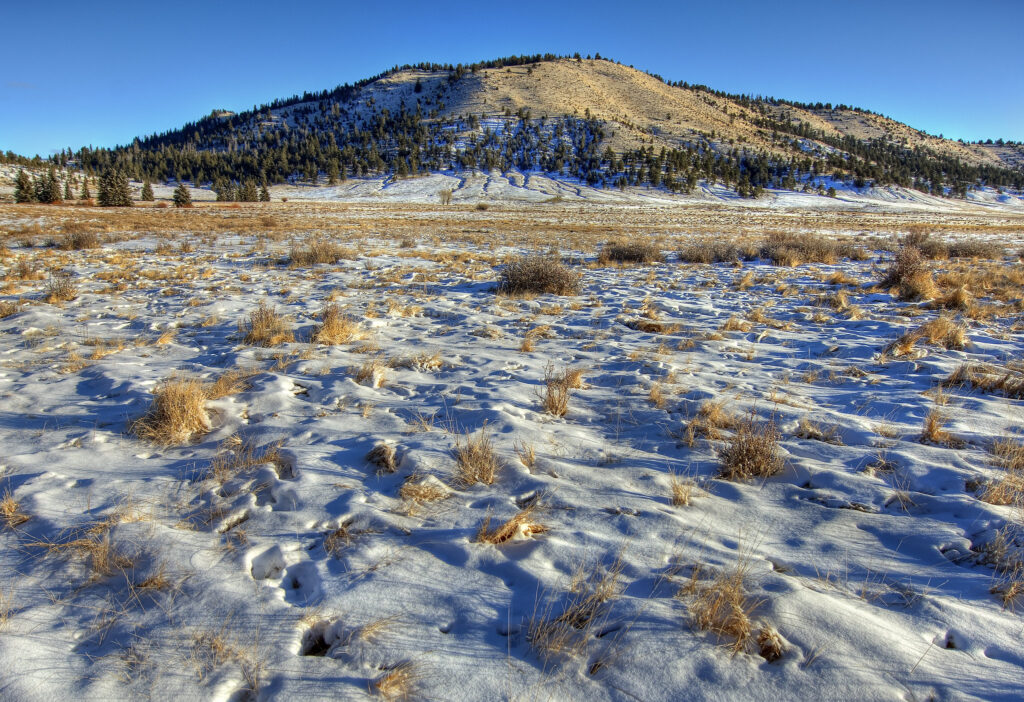
Under a high-emissions pathway, the US West could lose its springtime snow cover by 2100, according to a new JGR Atmospheres paper. Credit: knowsphotos/flickr
AGU News
WaterSciCon press registration open
Registration is open for the Water Science Conference, a collaboration of AGU and the Consortium of Universities for the Advancement of Hydrologic Science, Inc. (CUAHSI) convening 24-27 June in Saint Paul, Minnesota. The program features the confluence of science, policy and community and sessions coupling research to applied workshops. Interested reporters and press officers should email [email protected] with credentials. [press information][scientific program][media advisory]
Featured Research
The US West could see snow-free springs by 2100
“Snow droughts” occur when there is less snow on the ground than expected, leading to water shortages and heightened wildfire risk. Snow droughts in the West will worsen by five to nine times by 2100, primarily due to warmer temperatures, a new study finds. [JGR Atmospheres research]
Pikas create bare patches, warming permafrost in Tibetan Plateau
Pikas — the tiny, cute mammals often heard squeaking in alpine boulder fields — create bare patches of ground as they burrow. In shallow Tibetan soils with permafrost, that loss of vegetation led to a warming of 0.36 degrees Celsius. It’s a previously unexplored pathway for permafrost warming. [Geophysical Research Letters research]
Heatwaves during El Niño travel farther and more slowly
Heatwaves that occur under El Niño conditions tend to be more frequent, be more persistent, travel farther, and move more slowly than heatwaves under La Niña conditions, according to a new study that examined heatwaves from 1961 to 2020. The pattern held over all continents but was strongest in the tropics. [Geophysical Research Letters research]
More consistency in qualifying exams could help diversify geosciences
Scientists favor data-driven reasoning but administer graduate student qualifying exams, a critical milestone in a student’s career, with surprisingly little guiding data. Re-examining these exams may advance educational equity and quality. [AGU Advances research][Editor’s highlight]
Seals reveal new meltwater currents in Antarctic seas
By analyzing hydrographic information gathered by seals and an undersea glider, researchers found new meltwater currents, providing valuable insights into melt of the rapidly thinning West Antarctic Ice Sheet. [JGR Oceans research][Eos research spotlight]
###